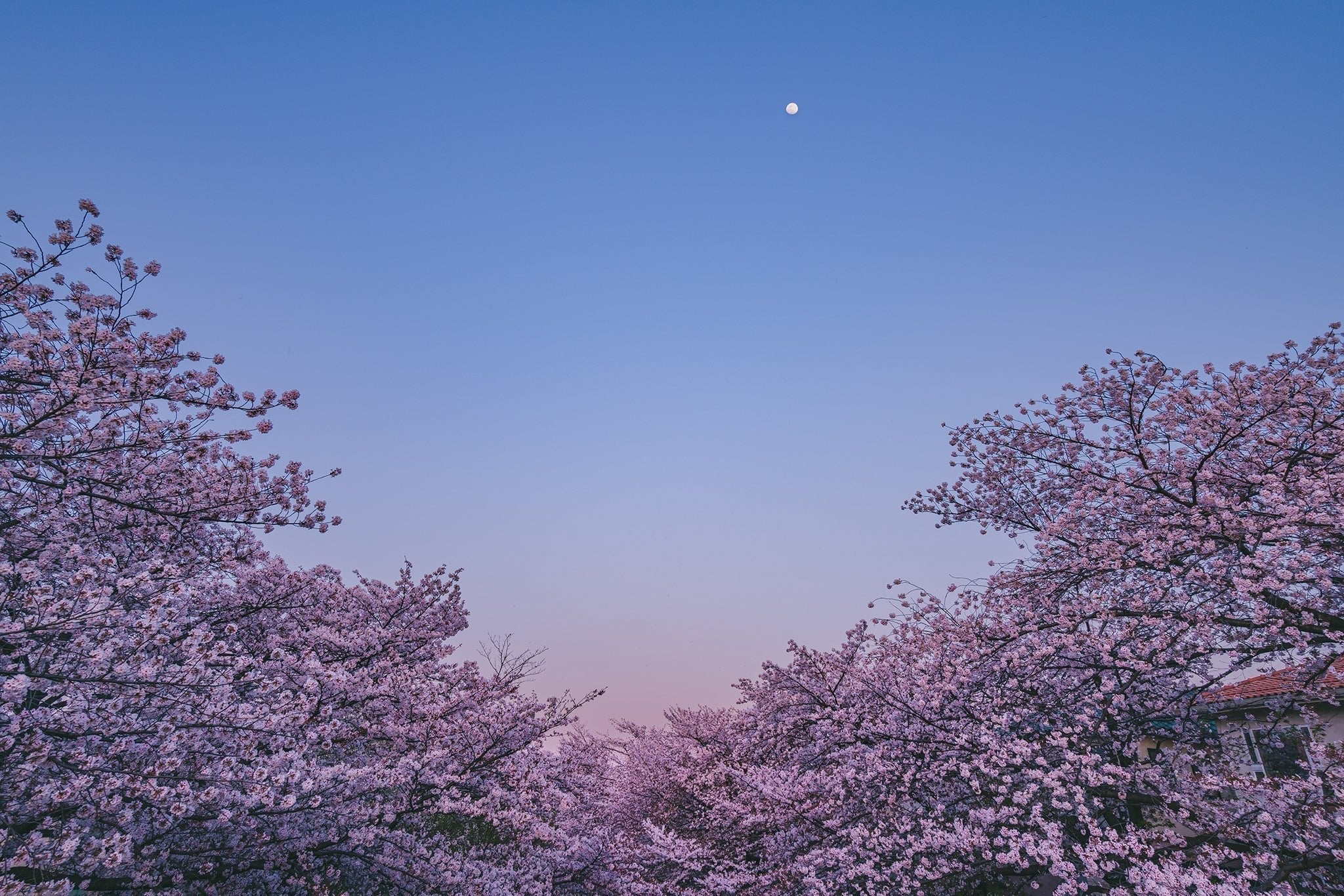If someone turned to you while strolling under moonlit sakura trees and said, “The moon is beautiful, isn’t it?” — what would you think it meant?
Most people already know that we Japanese hardly ever say “I love you.” Unlike English, where the phrase is spoken often and easily, in Japan love is usually shown through action — walking together under one umbrella, preparing a favorite meal, or simply sharing quiet time side by side.
And yet, we do have words that carry love in them. They just don’t look like it at first. One of the most beautiful is this:
“月が綺麗ですね (Tsuki ga kirei desu ne)” — “The moon is beautiful, isn’t it?”
On the surface, it’s only about the night sky. But hidden inside is a quiet confession: I love you.
A novelist’s wisdom
This expression is often traced back to the great writer Natsume Sōseki (1867–1916). When his students asked how to translate “I love you” into Japanese, he is said to have replied that such direct words did not fit Japanese sensibilities. Instead, he suggested admiring the moon together.
It was the Meiji era, a time when Japan was opening itself to the West, borrowing new ideas and ways of speaking. And yet, Sōseki believed that Japanese language should keep its own elegance — indirect, subtle, and rich with meaning between the lines.
Reading between the lines
That is what I find so moving about this phrase. Japanese communication has always valued nuance — what is not said can matter as much as what is.
So when someone says “The moon is beautiful, isn’t it?” it isn’t really about the moon. It is an invitation: Do you understand my heart without me saying it? Do you feel as I feel?
A practical guide: how to respond
If someone ever says “月が綺麗ですね” to you, here are some traditional (and creative) ways you could answer — depending on how you feel.
If you feel the same way
- 「死んでもいいわ」— I could die happy.
- 「このまま時が止まればいいのに」— I wish time could stop right now.
- 「あなたと見るから綺麗なのです」— It’s beautiful because I’m seeing it with you.
- 「私にとって月はずっと綺麗でしたよ」— The moon has always been beautiful to me.
- 「星も綺麗ですよ」— The stars are beautiful too.
- 「今ならきっと手が届くでしょう」— Right now, I feel like I could reach it.
- 「ずっと一緒に月を見てくれますか?」— Will you keep looking at the moon with me, always?
- 「こんな綺麗な月は初めてです」— I’ve never seen the moon so beautiful before.
If you need to refuse gently
- 「私には月が見えません」— I can’t see the moon.
- 「そうですね」— Yes, it is. (neutral, polite, distancing)
- 「星の方が綺麗ですよ」— The stars are prettier.
- 「私は太陽の方が好きです」— I prefer the sun.
- 「手が届かないから綺麗なのです」— It’s beautiful precisely because it’s out of reach.
- 「私には明るすぎます」— It’s too bright for me.
- 「夜更けには沈んでしまうでしょうね」— It will sink below the horizon by midnight anyway.
These replies may sound dramatic in English, but in Japanese they feel natural — full of tenderness, even in refusal.
Other beautiful phrases
There are other expressions in the same spirit:
- 「星が綺麗ですね (Hoshi ga kirei desu ne)」— “The stars are beautiful, aren’t they?”
Another poetic way of confessing affection. -
「雨がやみませんね (Ame ga yamimasen ne)」— “The rain isn’t stopping, is it?”
Which really means, Let’s stay here together a little longer.
Each one takes something ordinary — stars, rain, the moon — and turns it into a vessel for human feeling.
Why I want to keep them alive
The truth is, not many people use these phrases anymore. Younger generations often don’t even know them. Life has become faster, more direct, more digital.
But personally, I think these expressions are so beautiful. I wish modern me could use them more! They capture a style of communication where love is whispered instead of shouted, and even a refusal is softened into kindness.
月が綺麗ですね reminds us that language can shimmer like the moon itself — quiet, poetic, and full of meaning left unspoken.
And maybe, if someone ever says this to you under a night sky, you’ll know it’s about more than just the moon.


Leave a comment